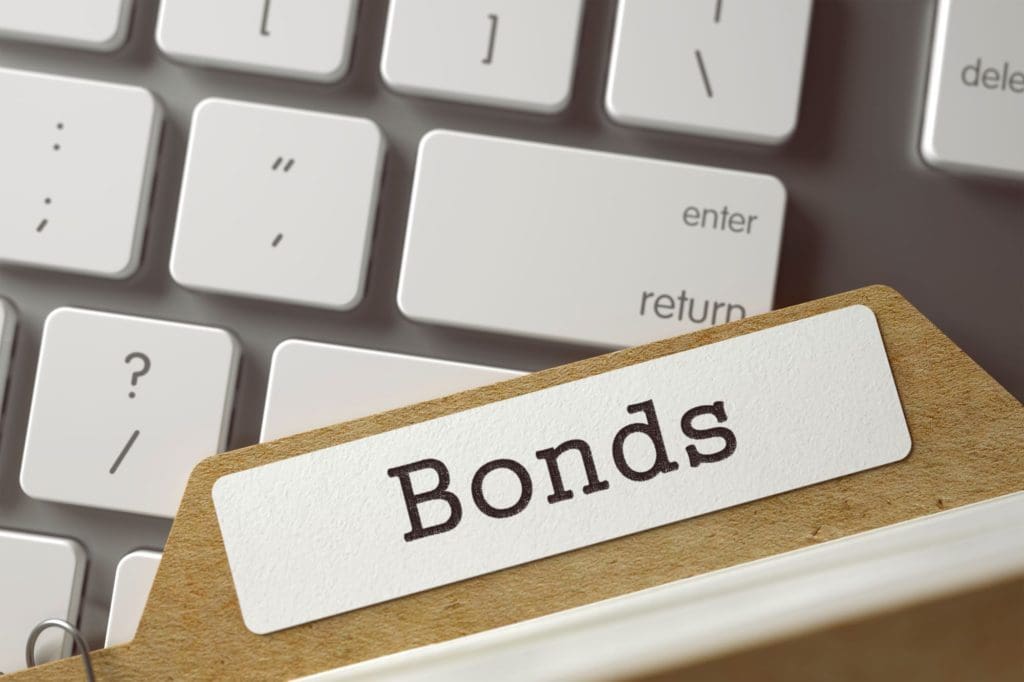
Fixed Income Funds in Kenya to Consider for Your Investing
Collective funds have made it very affordable for average investors. One of those funds is fixed income funds, which invest in fixed income earning assets, like government and corporate bonds. If you are looking for a more affordable way to invest in bonds, fixed income funds are an excellent opportunity.
Instead of the minimum investment amount of KSh. 50,000 required to invest in treasury bonds and treasury bills, you can start with as low as KSh. 1,000 with fixed income funds. The minimum initial amount will vary between funds. However, it is still more affordable than what’s needed for a single government security or even a corporate bond.
In this article, I will take you through what fixed income funds are, including their benefits, and some of the fixed income funds in Kenya to consider.
| FUND | INITIAL
AMOUNT |
MINIMUM TOP-UP | MANAGEMENT FEE (P/A) | INTEREST
(P/A) |
INTEREST DISTRIBUTION |
| CIC Fixed Income Fund | KSh. 5,000 | KSh. 1,000 | 2.00% | – | Semi-annual |
| Jubilee Fixed Income Fund | KSh. 5,000 | KSh. 1,000 | 2.00% | Up to 15.59% | Monthly |
| Sanlam Fixed Income Fund | KSh. 2,500 | – | 2.00% | – | Quarterly |
| ICEA Bond Fund | KSh. 500 | None | 2.00% | – | – |
| Madison Fixed Income Fund | KSh. 5,000 | KSh. 1,000 | 2.00% | 15.30% | Semi-annual |
| Kuza Fixed Income Fund | KSh. 5,000 | KSh. 1,000 | 2.00% | 14.00% | Monthly |
| Etica Fixed Income Fund | KSh. 100 | KSh. 100 | 2.00% | 15.61% | – |
| Old Mutual
Bond Fund |
KSh. 50,000 | KSh. 5,000 | 3.00%+VAT | – | – |
Fixed Income Funds 101
Before we get into fixed income funds in Kenya to consider, let’s look at the basics of these funds. Before investing in them, it’s important to understand what they are and how they work. It will help you ensure that they align with your investment goals.
What’s a Fixed Income Fund?
First things first, you should know that some funds will also refer to them as bond funds. As mentioned earlier, they are unit trusts that invest a collective amount of capital from numerous investors in fixed income assets, like bonds. These securities, such as government bonds and corporate bonds, provide a predetermined rate of return at regular intervals.
While these are the main investments in fixed income funds, a lot of fund managers will have other asset classes, especially cash and equivalents, like fixed deposit accounts. This not only helps in diversifying their portfolios further but also increases liquidity for funds to help meet investors’ cash withdrawal requests.
Who Should Invest in a Fixed Income Fund?
As with other investment assets, it’s important to evaluate the investment asset to ensure it aligns with your investment and financial goals. So, who should consider investing in a fixed income fund?
These funds are ideal for investors who:
- Want possible capital protection with moderate growth
- Are looking for a stable regular income
- Have a medium to long investment horizon, like 2 to 5 years
- Have a low to moderate risk appetite
- Looking to tap into the fixed income market at an affordable rate
Why Invest in Fixed Income Funds
Fixed income funds offer several advantages, including;
Affordability
Fixed income funds offer an affordable avenue to invest in fixed income securities, like bonds. For instance, you will need a minimum of KSh. 50,000 to invest in Kenyan government securities.
This can be a significant amount, especially if you have debts to settle or are struggling financially but still want to invest. That’s where fixed income securities come in. With as little as KSh. 500 to KSh. 1,000 you can start investing in fixed income securities through these funds.
Liquidity
These funds are also very liquid, meaning it’s easier or faster to withdraw your funds. Depending on the rules of the fund, you can access your funds within 24 to 72 hours.
Diversification
Diversifying your investments helps spread the risks. A fixed income fund helps you achieve this as fund managers invest in various fixed income assets, like various government and corporate bonds. Additionally, some fund managers might diversify their funds with other assets, like cash and equivalents.
Low Risk
Fixed income funds have a low to medium risk compared to some investment assets, like stocks. This makes them an excellent option for risk-averse investors.
Professional Fund Management
Finally, these funds have a professional manager who is in charge of managing the fund’s investment activities, including asset allocation and rebalancing. This saves you the hassle and time it would take to do the research and pick and manage the investments on your own.
Risks of Investing in Fixed Income Funds
As it is with other investment assets, bond funds also have risks. These risks can affect your investment, including the rate of return and your capital.
Interest Rate Risk
This is a significant risk for fixed income funds. It refers to the potential for investment losses due to fluctuations in interest rates. When interest rates increase, the market value of existing bonds usually falls. That’s because newer bonds are usually issued at higher rates. In return, it makes older bonds in the market which have lower yields less attractive. This inverse relationship can affect the performance of fixed income funds, potentially leading to a decrease in their net asset value (NAV).
Credit Risk
Credit risk pertains to the possibility that a bond issuer will fail to make principal or interest payments when due, which can lead to losses for the fund. This risk is more pronounced in corporate bonds, especially those issued by companies with lower credit ratings. Fixed income funds that invest in high-yield bonds are particularly exposed to credit risk.
Inflation Risk
Inflation risk, or purchasing power risk, occurs when the rate of inflation outpaces the returns on investments. For fixed income funds, this risk can erode real returns over time, as the fixed interest payments may have less purchasing power in the future if inflation is high.
Fixed Income Funds in Kenya to Consider
There are numerous fixed income funds to choose from in Kenya. For this article, I focused on funds that;
- Are regulated by the Capital Markets Authority
- Are owned and managed by firms with a long history in the industry,
- Ease of applying, e.g online application
- Have information about the fund readily available on the website or social media accounts
However, you must do your own research to ensure that you settle for a fund that aligns with your goals and financial capability.
Without further ado, here are some of the fixed income funds in Kenya to consider, in no particular order.
Disclaimer: some of the funds on this list are by firms that don’t have a long history, like 20+ years of industry existence like other industry giants. However, they are regulated by CMA.

CIC Fixed Income Fund
The CIC fixed income fund is a low-medium-risk fund, investing mainly in government and investment-grade corporate bonds. Besides bonds, the fund also invests in cash and equivalents to help meet the liquidity needs of investors. The fund was launched in June 2011 and has an AUM (Asset Under Management) of about KSh. 118.4M as of the publishing of this article.
The fund is affordable, with an initial investment amount of KSh. 5,000, a minimum top-up of KSh. 1,000 and an annual management fee is 2.00%. If you are looking for an investment avenue with regular income, the CIC fixed income fund pays semi-annual dividends.
Jubilee Fixed Income Fund
Jubilee fixed income fund is also a low-medium risk investment avenue if you are looking for a low-risk investment opportunity. From the fund’s fact sheet, it has a large allocation in government securities and is diversified with cash and equivalents. It’s also an excellent investment avenue if you are looking for regular income as it has a monthly income distribution.
The fund is affordable, with a minimum initial investment amount of KSh. 5,000 and minimum top-up of KSh. 1,000. While the annual management fee is 2%, the fund has extra charges, which can add up to an expense ratio of over 2.50% when VAT is also included. However, the quoted return rate is usually after the deduction of the applicable expenses. The returns are good, of up to 15.59% as of publishing the article.
Sanlam Fixed Income Fund
Sanlam fixed income fund has been in existence for a while, having been launched in November 2024. It is a medium-risk unit trust investing in long-term government securities, investment-grade corporate bonds, and cash and equivalents. As a medium-risk fund, it’s ideal for moderate risk takers, i.e., you are not too conservative but you aren’t willing to take on a high-risk investment asset.
It’s quite affordable with an initial investment amount of KSh. 2,500 and an annual management fee of 2.00%. However, the fees you pay will be higher when other fees are added. From the Feb-2024 fund fact sheet, its 12-month total expense ratio was 2.10%, inclusive of VAT. I have found this to be more affordable than other funds. On income distribution, the fund distributes earnings quarterly. As for returns, the February fund fact sheet shows a return of 1.5% in February 2024 and an annualized return of 11.6% since the inception of the fund.
ICEA Bond Fund
ICEA’s bond fund is a medium to high-risk unit trust investing in government bonds, corporate bonds, and other fixed deposits. It was launched in October 2010
The initial investment amount is one of the lowest. You only need KSh. 500 and no minimum amount for top-ups, allowing you to continually invest whatever amount you can afford. The annual management fee is 2.00%.
Madison Fixed Income Fund
Madison fixed income fund is an open-ended unit trust registered in June 2022. It invests in Kenyan government securities, cash and equivalents, and corporate bonds. It’s ideal for investors with a moderate risk profile.
How much do you need to invest? You will need an initial amount of KSh. 5,000 and minimum top-up of KSh. 1,000. The annual management fee is 2.00%. Its returns are also attractive, with an effective annual yield of 15.30% according to the February 2024 fact sheet. Additionally, the fund has a lock-in period of 3 months.
Kuza Fixed Income Fund
Kuza fixed income fund is a low-medium risk fund launched in December 2022. It invests in government bonds, investment-grade corporate securities, and other cash and equivalents assets.
Like the rest, it’s also very affordable with a minimum initial amount and monthly top-us of KSh. 5,000 and KSh. 1,000 respectively. The annual management is also at 2.00%/annum. However, I recommend checking out whether there are additional fees from fund expenses that can affect the total expense ratio for the fund. From the available fund fact sheet as of the publishing of this article, the effective yield rate is 14.00%. The fund also has a 3-month lock period and monthly distribution of earnings.
Etica Fixed Income Fund
Etica fixed income fund invests in government bonds, cash and equivalents, and unlisted securities. It’s also a medium-risk fund, ideal for investors with moderate risk appetite. I have found it to be one of the most affordable fixed income funds, making it ideal for investors who want to test the market or have little disposable income for investments.
Its minimum initial amount is KSh. 100 and no indication of the minimum top-up amount. That makes it not just affordable but friendly if you have an irregular source of income or are struggling financially but still want to invest. The annual management fee is 2.00%. Still, I recommend reaching out and inquiring about other expenses. According to February’s fund fact sheet, the effective yield rate is 15.61%. Another advantage I have found is that the fund doesn’t have a lock-in period.
Old Mutual Bond Fund
Old Mutual Bond Fund was launched in October 2008 and invests in long-term fixed income securities. While it has a large allocation in treasury bonds, the fund is also diversified with other short-term assets, including treasury bills and fixed deposits.
Unlike its counterparts, Old Mutual’s bond fund is a bit expensive. For starters, the initial minimum deposit is KSh. 50,000 and a minimum top-up of KSh. 5,000. The service fee is also high at 3.00%, with the rate increasing when you include VAT.

Fixed Income Funds vs Money Market Funds
Yes, there is a difference between money market funds and fixed income funds. Understanding the key differences that set these two unit funds apart is important. It’s key to choosing the savings or investment fund that meets your financial goals. So, let’s look at the key differences between MMFs and FIFs.
| Fixed Income Funds | Money Market Funds | |
| Composition | Bonds | Short-term assets, e.g., treasury bills, cash & equivalents |
| Risk | Medium-high | Low risk |
| Return | Medium-high | Low return |
| Time Horizon | Medium-long-term | Short-term |
Investment Strategy and Composition
On the one hand, fixed income funds invest primarily in debt securities, i.e., bonds and other fixed income securities. Additionally, these securities often have longer-term maturity dates. These funds aim to provide investors with regular income through interest payments, alongside the potential for capital appreciation.
On the other hand, money market funds invest mainly in short-term assets with a maturity period of less than a year. These include treasury bills, fixed deposits, commercial papers, etc. The goal of money market funds is to provide investors with high liquidity and capital preservation. They are ideal for investors seeking a safe place to park their funds in the short term.
Risk and Return Profile
Due to their investment in securities with longer maturities, fixed income funds are generally subject to higher interest rate risk compared to money market funds. With an increase in interest rates, the value of existing bonds with fixed interest rates tends to decrease, potentially affecting the fund’s net asset value (NAV). However, fixed income funds typically offer higher yields to compensate for this increased risk.
On the other hand, money market funds, with their focus on short-term securities, offer lower risk and lower potential returns. Their primary aim is to provide stability and liquidity, rather than generating high income.
Investment Time Horizon
Given their focus on short-term debt, money market funds are often suitable for investment goals with a shorter time horizon. This could include saving for an upcoming down payment or building an emergency fund.
Fixed income funds, with their ability to invest in longer-term securities, can cater to a wider range of investment timeframes, especially medium-term to long-term wealth accumulation goals.
Suitability for Investors
The choice between fixed income funds and money market funds largely depends on your financial goals, investment horizon, and risk tolerance. Fixed income funds are more suited to investors looking for regular income and who are willing to accept moderate levels of risk for potentially higher returns.
Money market funds, conversely, are ideal for investors seeking a temporary repository for their funds, emphasizing capital preservation and easy access to their investment.
Final Word
If you are looking for an affordable investment avenue, I recommend considering fixed income/bond funds. They have a low initial investment amount, usually lower than KSh. 5,000. In addition to their affordability, they offer you an opportunity to diversify your portfolio. This can help lower your portfolio’s risk.
Having said that, ensure that you take the time to evaluate the available fixed income funds. Besides the initial amount, consider the minimum top-up amount required, and the fund’s expense ratio. It’s also important to consider your financial goals, ensuring that the investment aligns with your goals. Keep in mind that bond funds are ideal for medium to long-term investment, i.e., over 2 years. As such, they are not ideal for funds you’d want to liquidate in the near future. If that’s the case, consider saving your money in a money market fund.
FAQ
What Are Fixed Income Funds?
Fixed income funds are investment pools that predominantly invest in debt securities such as government bonds, corporate bonds, and other debt instruments. These funds aim to provide investors with regular income streams through interest payments, while also focusing on capital preservation.
Who Should Invest in Fixed Income Funds?
Fixed income funds are suitable for investors seeking regular income with a moderate risk appetite. They are particularly appealing to those nearing retirement or individuals looking for a stable income stream to complement their other investments.
What Is the Minimum Amount Required to Invest in Fixed Income Funds?
The minimum investment amount varies across different funds. Some funds may allow investors to start with as little as a KSh. 1,000, making fixed income funds accessible to a wide range of investors.
Can I Withdraw My Money From a Fixed Income Fund at Any Time?
The ease of withdrawing your money from a Fixed income fund depends on the specific fund’s liquidity terms. Some funds may have lock-in periods where your capital is inaccessible for a designated timeframe. Always consult the fund’s fact sheet or inquire with the firm for details on withdrawal procedures and potential limitations.
What Are the Risks Associated With Fixed Income Funds?
The primary risks include interest rate risk, where the fund’s value may decrease due to rising interest rates, and credit risk, which involves the possibility of a bond issuer defaulting on their payments. However, these risks can be mitigated through diversification and careful selection of securities.






